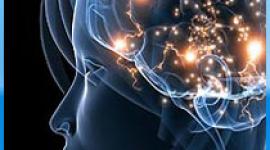Treatment of Depression and Bipolar Disorder
A Primer on Depression and Bipolar Disorder
II. MOOD DISORDERS AS PHYSICAL ILLNESSES
C. Treatment of Depression and Bipolar Disorder
 As has been mentioned several times above, the most effective tools available for the treatment of depression and bipolar disorder are medications (i.e. drugs). Nevertheless, many victims of these illnesses are often concerned and confused about taking medication, and therefore resist treatment.
As has been mentioned several times above, the most effective tools available for the treatment of depression and bipolar disorder are medications (i.e. drugs). Nevertheless, many victims of these illnesses are often concerned and confused about taking medication, and therefore resist treatment.
From my experience with hundreds of people who have CMI, I have concluded this resistance originates from two erroneous ideas. First, there is a confusion of therapeutic psychiatric medication with illegal psychoactive "street drugs''. Anyone beginning treatment with psychiatric medication needs to understand clearly that there is no more connection between the former and the latter than there is between a Greyhound bus and a miller moth.
The street drugs are chosen because they interfere with normal operation of the brain and produce abnormal and often bizarre mental responses. They actually destroy normal brain function, and if abused in sufficient quantity for sufficient time, can lead to injury or even death. In contrast, psychiatric medication has been very carefully chosen, perhaps even "designed'', to restore normal brain function to the greatest extent possible.
They are very carefully tested for efficacy and safety. Only after passing a rigorous review procedure are they released for public use. Subsequent to release, their performance is continuously monitored as they are used in thousands to millions of doses each year. In short, one need not have any fear whatsoever that psychiatric medication will have the same harmful effects as illegal street drugs.
Second, many potential users are fearful that psychiatric medication will degrade or interfere with their mental abilities. These fears are rarely a problem for people with deep depression (who basically will do anything reasonable to gain release from the depression), but often are quite strong for people who are mildly to moderately manic because those people feel ``good'', and believe that they have superior mental (and sometimes physical) abilities and performance.
These people don't want anyone tinkering with their ``mind''. They need to be convinced and reassured that controlling their mania will not degrade their intelligence, insight, cognitive and learning abilities; I can vouch first-hand for this statement. What they will lose is speed: the same tasks take a little longer. But those tasks will typically be done more carefully. It's a tradeoff: one loses the manic sense of speed and power, but one also is no longer driven obsessively, scattered by dozens of intrusive ideas and thoughts. And one loses the sense of isolation that characterizes mania because one is unable to make meaningful person-to-person contact with those around oneself.
For me, the manic state always produced the sensation of my seeming to be living in someone else's mind, or someone else living in mine. That is an unpleasant experience. I am more than happy to sacrifice manic "facility" in order to get rid of the other unpleasant, threatening, and destructive aspects of mania.
I will not go through the catalog of medications here because it has grown quite large, and excellent and authoritative discussions are easily available in the books cited in the Bibliography. In broadest terms, there are three groups of medications used to treat depression: (1) the tricyclics, (2) the MAO inhibitors, and (3) SSRIs (Selective Serotonin-Reuptake Inhibitors). The tricyclics were discovered first, and sometimes remain useful treatment strategies to this day. The MAOIs have restrictive dietary constraints for their use, and can have troublesome side effects; but for some people they provide effective relief. The breakthrough came with the development of the SSRIs. They work by inhibiting the reuptake of the essential neurotransmitter serotonin from a synapse between two nerve cells that have just fired, thus leaving it in place for the next time it is needed. These drugs (e.g. Prozac, Zoloft, Wellbutrin, Effexor) have proven to be extraordinarily effective in treating depression, while having only minor side effects. They have the advantage of not introducing something new to the "ecology" of the brain, but merely inducing the brain to leave one of its own natural "ingredients" in place so that it can be used when next needed.
It must be emphasized that specific person may respond to several of these drugs, just a few or even just one, or none. The challenge to the therapist is to discover, as quickly as possible, the drug that works best for each individual treated. If he/she is skilled (and lucky!), the first choice may work effectively and quickly. But if it doesn't, it is imperative to continue to try other possibilities until one is found that works!
This requires strong commitment on the part of both the victim and the physician. For example, in 1985, I started off with Desyrel, chosen by my doctor because it was the current ``wonder drug'' and putatively had few side effects. For me Desyrel was a disaster: it gave me no relief from depression after months of treatment (typically an antidepressant begins to work within 3 weeks of when it was started), it confused me, it made me uncontrollably sleepy during the day, and interfered with thinking and cognition.
Only after months of being so ``treated'' did I get effective help from Drs. Grace and Dubovsky, who switched me to a tricyclic, desipramine. As described above, within three weeks this different medication broke the depression. If you are not getting relief after a reasonable time, don't be shy about talking to your doctor about trying a different medication. The change might save your life. In 1997, when Desipramine had failed for me, it was clear what to do: Dr. Johnson immediately phased it out, and moved me to the SSRI Effexor without a hitch. That has made a world of difference!
Until recently, the first line of defense against mania was lithium (carbonate). It was discovered by John Cade in Australia in 1949, but was not used therapeutically in the U.S. for almost another 20 years. Sometimes in emergency cases the victim is started off on an antipsychotic drug such as Thorazine, Mellaril, or Trilafon; these are designed to help the victim calm down and make closer contact with reality. In cases of extreme mania -- someone totally out of control, needing to be restrained -- the effects of these antipsychotic drugs are often downright amazing. In the space of a very few days the victim becomes calm, and fairly normal in terms of overall behavior.
In 1997 this approach, including restraint, was necessary for me. If lithium fails to control the mania sufficiently, or has undesirable side effects, the therapist will then try other anti-manic agents such as Valproic Acid (Depakote), Tegretol, or Klonopin. These days Valproic Acid has generally become the preferred treatment for mania.
It is also worth mentioning that the effects of anti-manic treatment generally improve with time. In my own case, for example, I have noticed a definite, continuous "ramping up" in my general sense of well being, and my objective job performance. At the same time, it has been possible to reduce by almost half the amount of the medication I originally took. On the other hand, when lithium failed me, it failed suddenly, and I would have needed intensive medical supervision to have detected the transition.
After I was moved to Depakote, I felt much better than before; a persistent hand tremor that I had while taking lithium vanished, and I feel generally "calm" all the time. It is a blessing. All of these experiences point to the fact that it is essential to stay in close contact with your doctor while being treated for these illnesses; the disease is chronic, and your fight against it is likely to last a lifetime!
There are a number of practical issues to be faced when taking psychiatric medications. Like all medications, psychiatric drugs have side effects. Many of them are inconsequential, some are more serious. For example, with the antidepressants, it is common to experience a dry mouth. Sometimes this is so serious as to prevent one from speaking, and a drink of water doesn't solve the problem because what is needed is saliva produced by the body.
This one has been a problem for me because when I was a professor, I gave lectures. I solved the problem by chewing sugarless chewing gum when I felt the dryness start. It's a bit vulgar in appearance, but I simply explained to my students why I did it, and they accepted it.
Lithium can have two troublesome side effects. One mentioned above is that it often causes small-muscle tremor. I remember a period of time when I could not drink tea because I couldn't lift the cup from the table to my mouth without spilling it all over the table. Tremor was especially troublesome for me because it got so bad that I simply could not write; this seriously interfered with my daily professional activities. My doctor told me there was another drug to control the tremor, but I decided not to take any drugs that I didn't have to; eventually the tremor went away, seen only under extreme stress, and even then only a little.
A more serious side effect of lithium is that if its concentration in your bloodstream gets too large it can damage your kidneys. This problem can be avoided by having blood tests to measure the lithium level in your blood. Typically this will be done fairly frequently (monthly or maybe even weekly) when you first start lithium, but later, if your level is pretty constant, your doctor will check it maybe every 3 months. Similar remarks apply to Depakote.
Finally there is the very serious problem lithium caused me during rehabilitation from my auto accident: the margin between the therapeutic and toxic levels of lithium in the bloodstream is small. And because I became dehydrated while in the hospital, my lithium blood-level soared way above the toxic level, and induced the terrible coma I have described above. With Depakote, the known therapeutic range is about a factor of four, and the highest dose is still much below toxic. Thus compared to lithium, there is an enormous safety factor. In my case, I take almost the minimum dose, so I never expect to have any trouble with it.
It is crucial to take your medications exactly as your doctor prescribes. Do not "experiment'' with changing the dose on your own. Sometimes it is hard for people to remember whether or not they have already taken a pill that day, but it is vital not to take too many or too few. I beat the problem of an aging memory by using the small compartmented pill dispensers available in drug stores. They usually have seven compartments labeled with the days of the week, so one can tell immediately whether the correct number of pills have been taken.
It should also be stressed that you should never stop taking your pills all at once (``cold turkey''); to do so shocks the nervous system, and could precipitate a very severe psychiatric episode. If your doctor agrees that you should give up on a medication, always ramp the dosage down slowly over several days. For someone like me this is probably useless advice because it seems plain that I will be on my medications for the remainder of my life.
next: Suicide and Bipolar Disorder - Part II
~ back to Manic Depression Primer homepage
~ bipolar disorder library
~ all bipolar disorder articles
APA Reference
Staff, H.
(2008, December 5). Treatment of Depression and Bipolar Disorder, HealthyPlace. Retrieved
on 2026, January 14 from https://www.healthyplace.com/bipolar-disorder/articles/treatment-of-depression-and-bipolar-disorder



